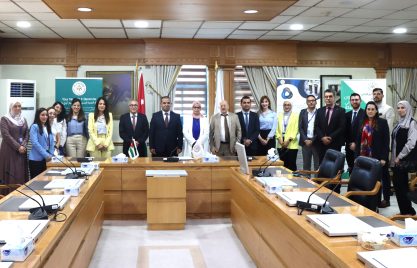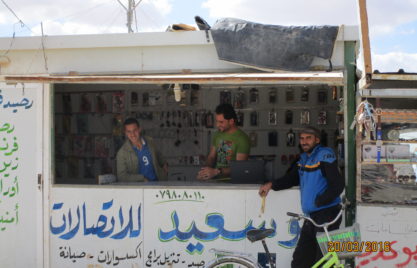Financial Inclusion and Microfinance are typically associated with developing countries. Yet, Germany has went through a distinctive history of financial inclusion for over 200 years, which has led to the majority of its population now being banked, and a thriving SME sector, the “Mittelstand”, the backbone of Germany’s economy and labour market. In an effort to learn from its peers and create an enabling environment for Jordanian MFIs and financial institutions relevant to financial inclusion, the CBJ in cooperation with the MFMR advisors went on a knowledge exchange trip to Germany.
The delegation started off in Frankfurt with visits to the German financial supervisors: the Deutsche Bundesbank and the BaFin, the Federal Financial Supervisory Authority. In doing so, the Jordan team looked particularly into the off- and on-site supervision approaches and instruments as well as the foundations of qualitative supervision and supervision based on principles and minimum requirements.
The varying methods of exchanging knowledge throughout the mission proved to be vastly enhancing. Bringing together experts on financial system development from around the world together, an interactive workshop at the GIZ headquarters facilitated different international experiences to trigger fruitful discussions about the situation of MFIs, especially in the MENA region and Jordan. Standing for innovation in finance, the GLS bank, a cooperative bank for responsible finance showcased the development of financial inclusion in Germany based on rural and local development finance as well as good practices of client protection in practice.
In the light of the newly established credit bureau in Jordan, a dialogue with the German credit bureau Schufa in Wiesbaden has proven to be very fruitful and rich for both sides. Just as solid information on credit histories, external audits are an indispensable part of supervising conform to best practice. In Germany, the Cologne based Auditing Association of German banks is the responsible institution for this. Two days in the facilities of the institutions formed an ideal frame for the whole trip and enhanced the delegation’s understanding of the role of an external auditor and also of a Deposit Insurance Fund.
Thanks to the cooperating institutions, the delegation of the CBJ had the chance to get a quick, intensive and holistic overview of the financial system in Germany. Altogether this international experience has built capacities within the team, enabling the CBJ to continuously develop the financial system in Jordan.
By Atilla Yuecel & Robin Schimmelpfennig



